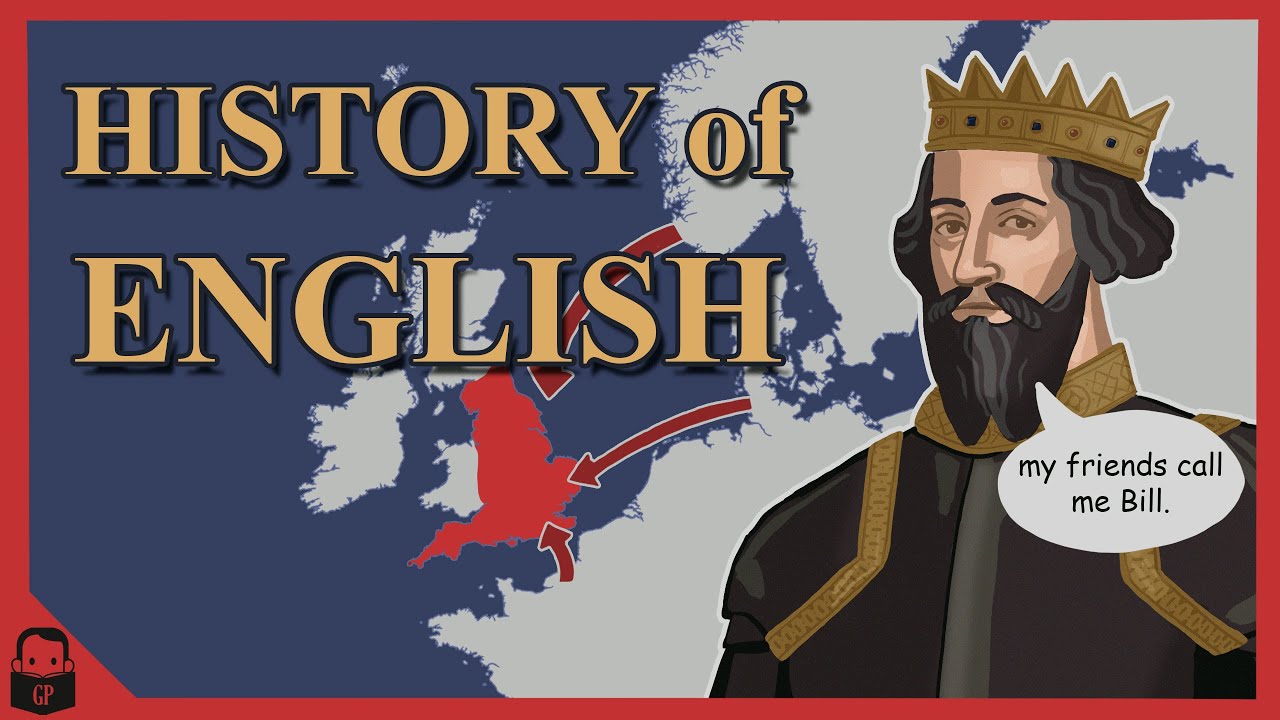The Great Vowel Shift and the History of Britain.
Summary
TLDRThis episode explores the fascinating history behind the English pronunciation of 'tomato' and 'potato,' highlighting the Great Vowel Shift's impact on the language. It delves into how historical events, such as the Black Death and the Hundred Years War, influenced language changes, emphasizing the unique transformation of English from Middle to Modern English.
Takeaways
- 🍅 The pronunciation of 'tomato' has been a topic of debate, highlighted by the song from the 1937 movie 'Shall We Dance', which humorously points out the differences in pronunciation.
- 📚 The Great Vowel Shift (GVS) is a significant historical linguistic event that transformed the pronunciation of English, affecting long vowels and some consonants, and is considered a transition from Middle English to Modern English.
- 🏰 The GVS is believed to have occurred between the mid-14th and 18th centuries, with some scholars suggesting it may have started earlier or lasted longer.
- 🌐 The GVS was not uniform across all regions of England, affecting different areas like Scotland, northern England, and southern England at different times and rates.
- 📜 The shift's exact nature and timing are still debated among scholars, but it had a profound impact on how long vowels were pronounced, making Middle English almost unintelligible to modern speakers.
- 📚 Evidence of the GVS can be inferred from rhymes in poetry, changes in spelling, and the pronunciation of words in personal correspondence, such as Elizabeth I's spelling of 'deep' as 'di PE'.
- 🌳 The Black Death in the 14th century led to significant population shifts and urban migration, which may have contributed to the mixing of dialects and the GVS.
- 🏰 The Norman Conquest and subsequent rule influenced the English language, with French becoming the language of the court and government, while English remained a primarily spoken, unregulated language.
- 🏛️ The Hundred Years War and the resulting resentment towards the French language may have influenced the pronunciation changes in English, as people sought to distance their speech from that of the enemy.
- 🌐 The GVS is unique to English and did not occur in other languages on the continent, making it a distinctive feature of English history and linguistic development.
Q & A
What is the main topic discussed in the script?
-The main topic discussed in the script is the history of the English language, particularly the Great Vowel Shift, and its impact on the pronunciation of words like 'tomato'.
What is the Great Vowel Shift (GVS)?
-The Great Vowel Shift (GVS) refers to a period of radical change in how the English language is spoken, occurring roughly between the mid-14th century and the 18th century. It affected the pronunciation of long vowels and some consonants, marking the transition from Middle English to Modern English.
Who coined the term 'Great Vowel Shift'?
-The term 'Great Vowel Shift' was coined by Otto Jespersen, a Danish linguist, in his 1909 work 'A Modern English Grammar on Historical Principles'.
How did the Great Vowel Shift affect the pronunciation of words?
-The Great Vowel Shift significantly changed the pronunciation of words with long vowels. For example, words that would have been pronounced with a long 'i' in Middle English, like 'bite', would have been pronounced differently in different regions and times, sometimes sounding like 'beat' or 'bot'.
What historical events contributed to the Great Vowel Shift?
-Factors contributing to the Great Vowel Shift include population migration, the mixing of regional dialects, the influence of French loanwords, and the impact of the Black Death. These events led to a significant transformation in the pronunciation of English words.
How did the Black Death impact the English language?
-The Black Death led to mass depopulation, which in turn caused people to migrate to cities, mixing different dialects and accents. This mixing of languages and the subsequent recovery of urban populations contributed to the changes in language that occurred during the Great Vowel Shift.
What role did the Norman Conquest play in the development of English dialects?
-After the Norman Conquest in 1066, the rulers of England primarily spoke French, and the language of the court and government was French. This led to the development of regional dialects in English, as the language was not regulated and was mainly a spoken language rather than a written one.
How did the Hundred Years War affect the English language?
-The Hundred Years War created a resentment towards the French language, as it was associated with the enemy. This led to an aversion to French and an overcorrection in the pronunciation of French-derived words, which may have contributed to the Great Vowel Shift.
Why is the pronunciation of 'tomato' different in different English-speaking regions?
-The pronunciation of 'tomato' as 'tomato' or 'tomahto' is influenced by historical and cultural factors, including the Great Vowel Shift and the influence of upper-class Englishmen in the 18th century who affected the pronunciation of certain words.
How can we understand the pronunciation changes that occurred during the Great Vowel Shift?
-We can understand the pronunciation changes through clues such as rhymes used by poets like Chaucer and Shakespeare, spellings in personal correspondence, and the study of historical documents like the Domesday Book. These sources provide insights into how words were pronounced before and after the Great Vowel Shift.
Outlines

This section is available to paid users only. Please upgrade to access this part.
Upgrade NowMindmap

This section is available to paid users only. Please upgrade to access this part.
Upgrade NowKeywords

This section is available to paid users only. Please upgrade to access this part.
Upgrade NowHighlights

This section is available to paid users only. Please upgrade to access this part.
Upgrade NowTranscripts

This section is available to paid users only. Please upgrade to access this part.
Upgrade Now5.0 / 5 (0 votes)





